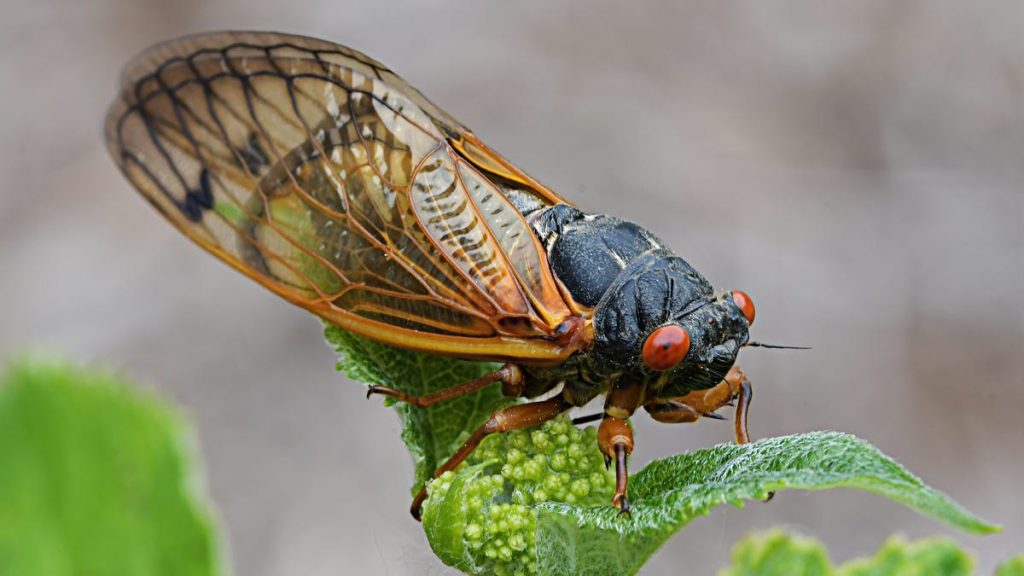This summer, a rare phenomenon of a double cicada brood is expected to occur in the US, with the Great Southern Brood and the Northern Illinois Brood emerging between mid-May and late June. The cicadas, known for their loud buzzing noise, are a temporary and harmless insect that do not bite or sting. While they may be noisy, they are not harmful to humans or pets, and experts advise against using pesticides on them. Instead, simple remedies such as noise-canceling headphones or earplugs can help manage the sound they produce.
Cicadas have a unique life cycle, with periodical cicadas emerging only every 13 or 17 years in large groups known as broods. This year’s double-brood occurrence is rare, with the last one happening in 1803. The broods of periodical cicadas steal the headlines from their more frequent annual counterparts, as they emerge in massive numbers and create a loud buzz. The cicadas are known for their distinctive appearance, with black bodies, red-brown eyes, and membranous wings with orange veins. The males produce a loud courting sound to attract mates.
Researchers believe that climate change could impact cicadas by causing them to emerge earlier due to rising global temperatures. The warmer winters and earlier springs could alter the cicada cycle, resulting in 17-year cicadas emerging as 13-year cicadas. While this change in schedule may disrupt their natural cycle, it is not expected to significantly impact their population or the food chain that relies on them. Citizen scientists can help researchers by using apps like Cicada Safari to collect data and track the emergence of periodical cicadas in different areas.
For those concerned about protecting trees from the cicadas, it is recommended to wrap the trunks of young trees with materials like cheesecloth or foil tape to prevent female cicadas from laying eggs on them. New trees are more vulnerable to cicada damage, as the females puncture branches to lay eggs, causing leaves to wither and possibly snap. While cicadas should not harm mature trees, precautions can be taken to protect young trees until the insects have completed their life cycle. Despite their nuisance, cicadas are a natural part of the ecosystem and play a role in the environment.
In regions where cicadas are prevalent, residents may be able to hear the loud buzzing of the insects as they emerge from the ground and begin their mating rituals. While the noise can be overwhelming at times, it is a temporary phenomenon that lasts for about six weeks. DIY soundproofing methods like weather-stripping foam tape or earplugs can help reduce the impact of the cicada noise on daily life. For those curious about trying cicadas as a snack, there are recipes available online, although it is important to note that they are related to shrimp and lobster, so individuals with seafood allergies should avoid consuming them.












